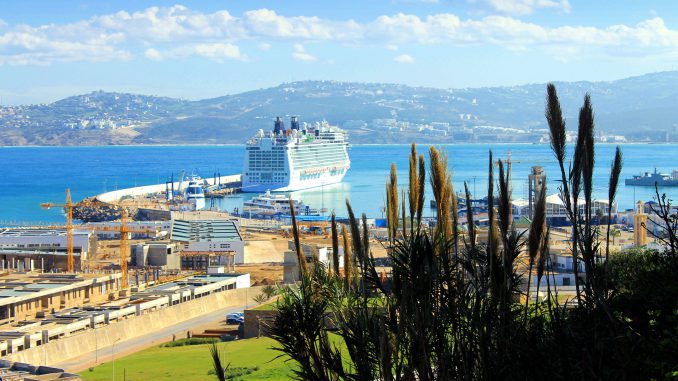
The “success story” of Tangier Med, which is today the first port infrastructure in the Mediterranean and in Africa, was highlighted, Friday, on the occasion of the autumn meetings of the World Bank and the International Monetary Fund which are being held in Washington.
Speaking at a panel discussion on the “contribution of trade to the post-Covid recovery”, the Director General of the Tangier-Med Port Authority (TMPA), Mehdi Tazi Riffi, stressed that this global logistics hub, located on the Strait of Gibraltar, is the result of a vision of King Mohammed VI, to position Morocco in the concert of free trade platforms at the international level.
The royal vision is based on two major pillars, namely to ensure the link between the international trade exchanges at the level of the Strait of Gibraltar given the important trade flow, in addition to developing a platform of competitiveness for the companies and multinational corporations established in the zone, he explained.
The aim is to establish Morocco as an “essential base” for global exports, Tazi Riffi said, noting that Tanger Med, now connected to more than 180 global ports, is the “hub” for nearly a thousand export-oriented companies.
This regional competitiveness cluster also has more than 80,000 jobs mainly focused on industrial and logistics activities operated by international players in sectors such as aeronautics, automotive, textiles, logistics and electronics, he noted, adding that the French car manufacturer Renault has been able to export, so far, nearly two million cars from its largest assembly site in Africa.
Citing the United Nations Conference on Trade and Development (UNCTAD), Tazi Riffi said that in terms of maritime connectivity, Morocco is now a “very important” stakeholder in world trade.
In addition, the speaker referred to the prospects in terms of logistics, noting that there is a “strong” business opportunity offered by the African Free Trade Area Agreement, especially in terms of its logistics aspect.
For their part, the other panellists shed light on how trade has contributed to the post-COVID recovery, looking at measures that could help make trade a stronger engine of economic growth and prosperity worldwide.
They also discussed the vital role of trade in maintaining supplies of food and other essential goods in the context of the pandemic, as well as measures that policymakers could take to facilitate trade, including the removal of non-tariff barriers, improving transport logistics and expanding trade finance.
Interventions also focused on the longer-term actions that developing countries need to better benefit from the economic benefits of trade, such as investment in logistics infrastructure.
The meeting was attended by the President of the World Bank Group, David Malpass, and the Director-General of the World Trade Organization, Ngozi Iweala.

Be the first to comment